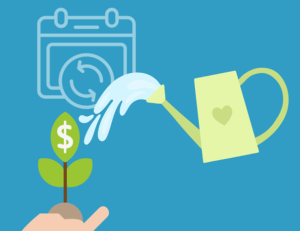Sarah Ford | October 1, 2012
Black Women’s Health Imperative Receives Award to Implement National Program to Prevent Type 2 Diabetes
October 1, 2012, Washington, D.C. – Black Women’s Health Imperative (Imperative) received an award today from the Centers for Disease Control and Prevention (CDC) to implement an effective program to prevent type 2 diabetes among Black women in seven states: California, Indiana, Louisiana, Michigan, Missouri, North Carolina and Virginia.
This 2012 Prevention and Public Health Fund cooperative agreement is part of a national effort to reduce the number of new cases of type 2 diabetes through the National Diabetes Prevention Program. The program is based on a research study led by the National Institutes of Health and supported by CDC, which showed that people with pre-diabetes could reduce their risk of type 2 diabetes by making modest lifestyle changes.
CDC awarded $6.7 million to six organizations to bring the National Diabetes Prevention Program to their communities.
“Type 2 diabetes is a serious problem among Black women,” said Eleanor Hinton Hoytt, president and CEO of the Imperative. “The burden of diabetes takes an immeasurable toll on all sectors of society—individuals, families, employers, insurers and on the health care system. We welcome the chance to work with CDC to help Black women make lasting changes to protect their health.”
CDC estimates that of the 15.7 million people with diabetes in the United States, more than half (8.1 million) are women. Minority racial and ethnic groups are the hardest hit by type 2 diabetes; the prevalence is at least 2-4 times higher among Black women than among white women.
The funding will be used for the following:
To recruit and train lifestyle coaches to lead classes;
To build alliances with businesses and insurers to provide long-term financial support for lifestyle change classes as a covered health benefit for employees and to establish reimbursement criteria that rewards successful programs;
To offer classes through the National Diabetes Prevention Program that help participants learn how to make healthy lifestyle changes that can reduce the chance of developing type 2 diabetes by nearly 60 percent.
The Imperative seeks to improve the health and wellness of Black women by providing culturally appropriate health resources and information, health and wellness education, promoting advocacy and health policies and interpreting and issuing reports on relevant research about the health status of our nation’s Black women and girls.
For more information about the Imperative, visit www.blackwomenshealth.org. For more information about the National Diabetes Prevention Program, visit www.cdc.gov/diabetes/prevention.
###
Get Resources and Insights Straight To Your Inbox
Explore More Articles
Nurturing Payroll Giving Donors: 5 Tips to Deepen Engagement
Payroll giving donors are some of the most consistent and committed supporters nonprofits have, but they’re often overlooked in day-to-day fundraising strategies. These donors contribute…
Read ArticleHow to Align Your Company’s Values with Your Hiring Process
Hiring is about more than filling roles—it’s about shaping the future of your company. Every new team member contributes to the culture you’re building, and…
Read ArticleGet Resources and Insights Straight To Your Inbox
Receive our monthly/bi-monthly newsletter filled with information about causes, nonprofit impact, and topics important for corporate social responsibility and employee engagement professionals, including disaster response, workplace giving, matching gifts, employee assistance funds, volunteering, scholarship award program management, grantmaking, and other philanthropic initiatives.




